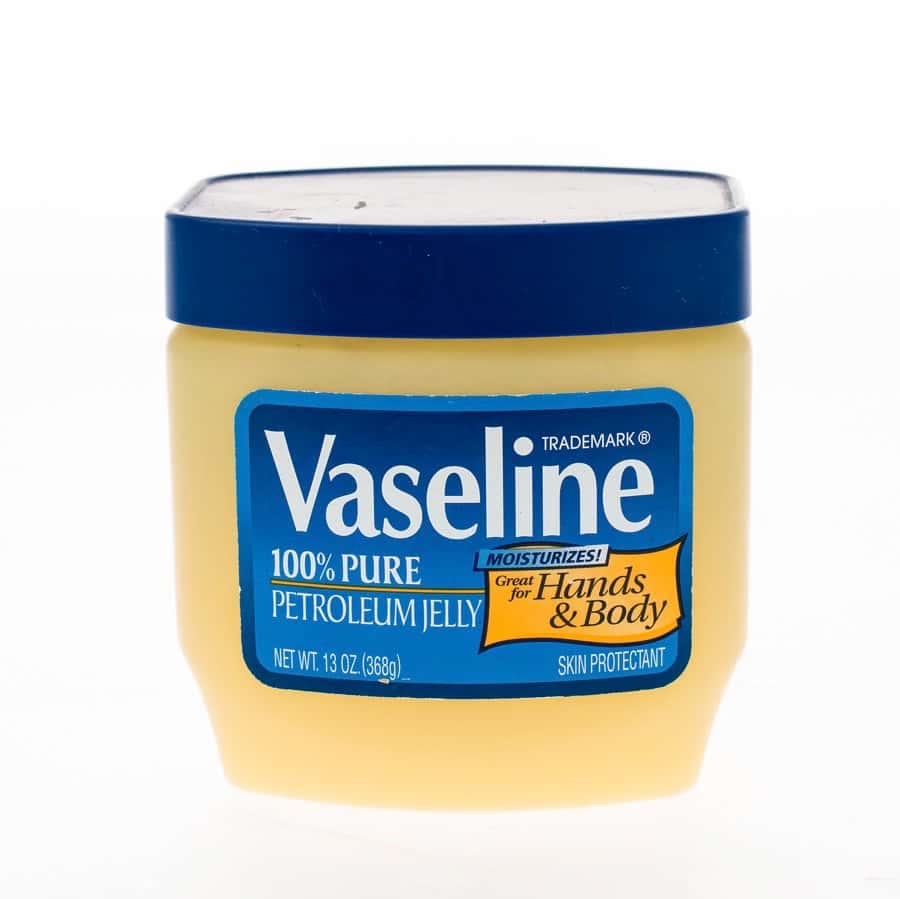
If your nose dries out and becomes painful, you might wish for something to soothe the soreness. Perhaps you have tried putting petroleum jelly in your nose. That may seem like a good idea, but it is not. Read on to learn why.
Putting Petroleum Jelly in the Nostrils:
Q. Forty years ago, my doctor told me to use Vaseline petroleum jelly in my nose. It keeps my nose comfortable and prevents nose bleeds.
I tried Ayr Nasal Gel but found it less effective, so I went back to the Vaseline. You just put a small amount on a cotton swab and coat the inside of your nose. It doesn’t take much.
Why You Should Not Put Petroleum Jelly in Your Nose:
A. Many people use Vaseline or other petrolatum products to moisturize their nostrils, just as you do.
One reader commented:
“I have used Vaseline many times as a remedy for dry sinuses. Vicks VapoRub is good as a substitute. I have never had any adverse effects from the use of petroleum-based products.”
Decades ago, doctors might have recommended such products. Petroleum-based products like Vaseline or Vicks VapoRub effectively moisturize skin in other areas, and many physicians might not have been aware of the potential harm. However, we strongly recommend against using petroleum jelly in the nostrils!
The trouble is that when you breathe in tiny particles of the petroleum product, they enter the lungs and can cause a pneumonia-like reaction. Such lipoid pneumonia is considered rare, but it can cause significant shortness of breath (Chest, March 1994).
A Problem with Vicks Around the Nose:
A case report of a young woman who used Vicks VapoRub around, not in, her nostrils for a year demonstrates that the consequences can be serious (Respiratory Medicine Case Reports, July 8, 2017). She had cough, fever and shortness of breath. Her abnormal chest X-ray led to a CT scan of the chest that demonstrated widespread pockets of lung inflammation.
Beware Other Oils Too:
Saline nasal spray or gel (such as Ayr) doesn’t seem to cause this reaction. Readers sometimes suggest putting an edible oil instead of petroleum jelly in the nostrils to lubricate them. Even this could cause trouble, however. Recently, Japanese doctors reported a case in which the cause of the lipoid pneumonia was ordinary vegetable oil (Internal Medicine, Feb. 1, 2020). The 25-year-old woman had been drinking a glass of vegetable oil every day because she had heard it would be good for her. Instead, she unknowingly breathed some in. Subsequently, it caused lung inflammation, shortness of breath and symptoms of pneumonia, including fever and cough.
Citations
- Brown AC et al, "Exogenous lipoid pneumonia due to nasal application of petroleum jelly." Chest, March 1994. DOI: 10.1378/chest.105.3.968
- Kilaru H et al, "Nasal application of petrolatum ointment - A silent cause of exogenous lipoid pneumonia: Successfully treated with prednisolone." Respiratory Medicine Case Reports, July 8, 2017. DOI: 10.1016/j.rmcr.2017.07.003
- Shimizu T et al, "The diagnosis of exogenous lipoid pneumonia caused by the silent aspiration of vegetable oil using a lipidomic analysis." Internal Medicine, Feb. 1, 2020. DOI: 10.2169/internalmedicine.3676-19

